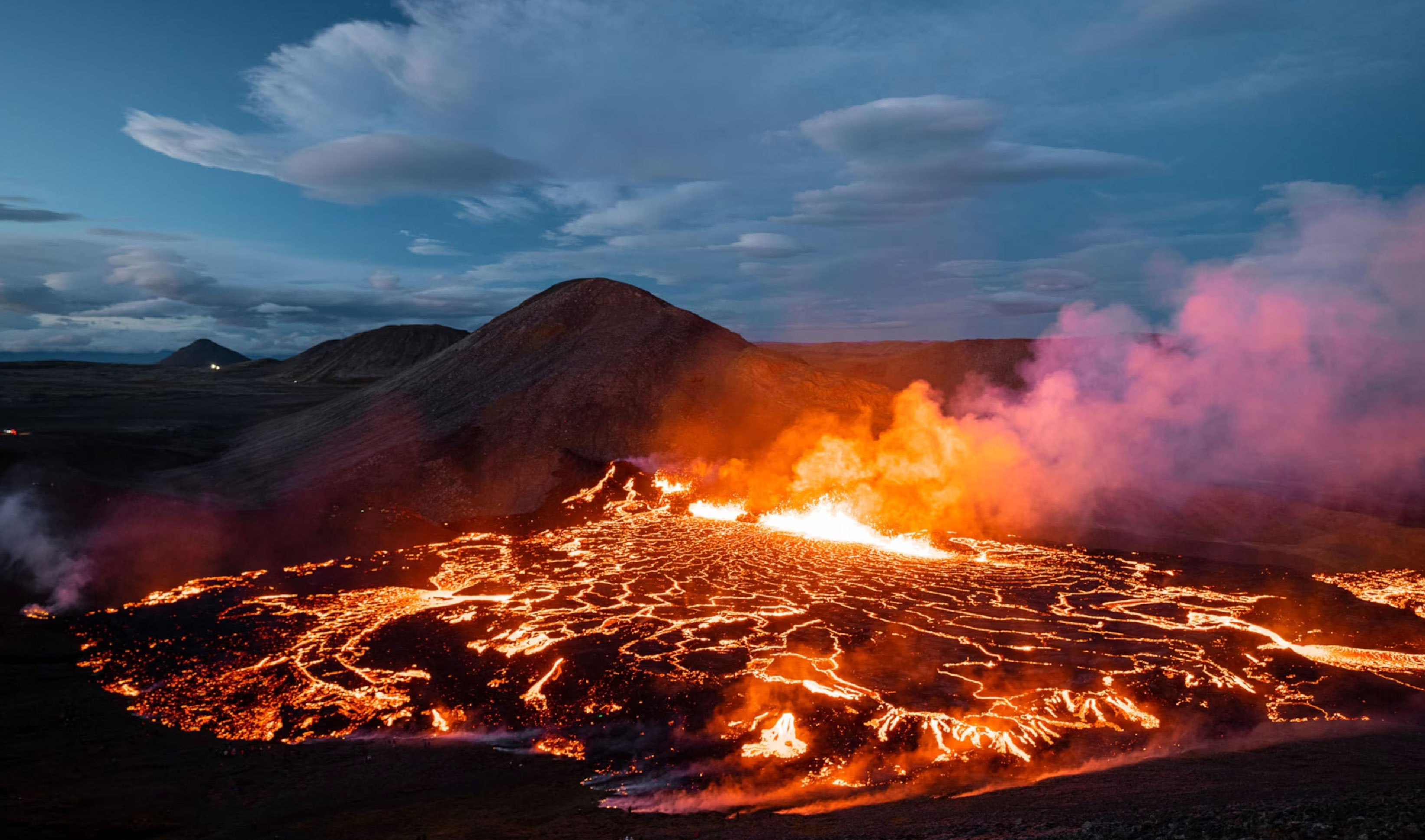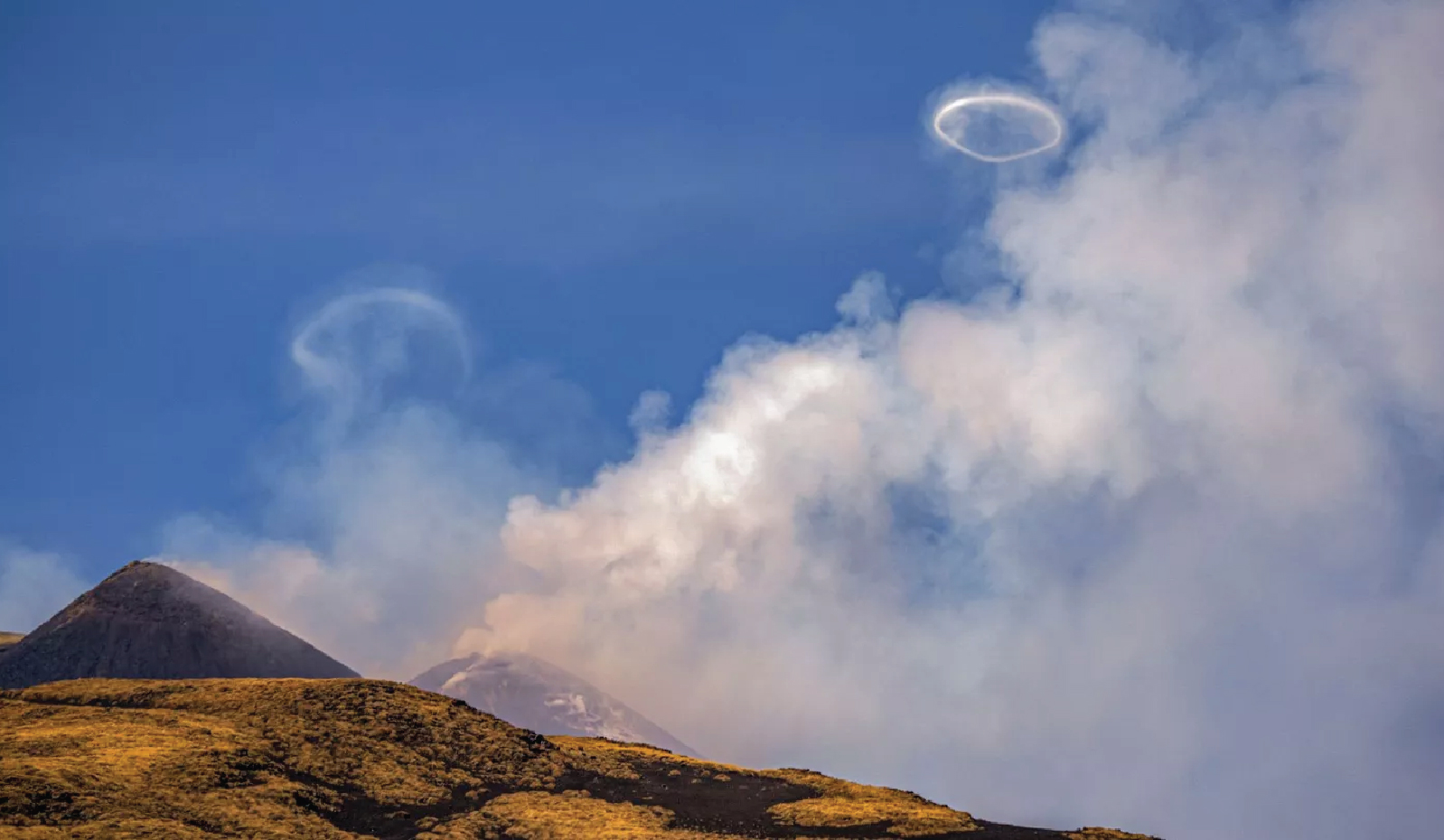A recent study by Indian Institute of Geomagnetism establishes the role of volcanism in shaping space weather.
Key findings of the study
- Ionospheric Disturbance: Volcanic eruptions produce strong atmospheric gravity waves triggering formation of Equatorial Plasma Bubbles (EPBs).
- EPBs, normally observed in the equatorial ionosphere, are depletions in ionospheric plasma density formed during post-sunset hours.
- Impacts Satellite Communication and Navigation Systems: Generated EPBs can impact satellite communication and satellite-based technologies.
Volcanism and its Impacts
- A volcano is an opening in Earth's crust through which lava, ash, and gases erupt. Recent incidents include Mount Ruang (Indonesia, 2024), Whakaari/White Island (New Zealand, 2024), etc.
Positive Impacts of Volcanic activities
- Short periods of cooling Earth’s atmosphere: Particles from volcanoes can cause temporary cooling by shading incoming solar radiation
- Source of geothermal energy: can provide free electricity for locals
- Improvement in soil fertility by ejected volcanic ash
- Provides Mining opportunities as magma brings valuable minerals to the surface.
- Others: Tourism potential; ash acts as soil fertilizer, etc.
Negative Consequences of Volcanic activity
- Impact on Climate: With the release of dust, ash, and other gases into the atmosphere.
- Lead to disasters such as Tsunami (E.g. Tonga eruptions (2022)
- Others: Leads to damage of lives, property, habitat, and landscapes





